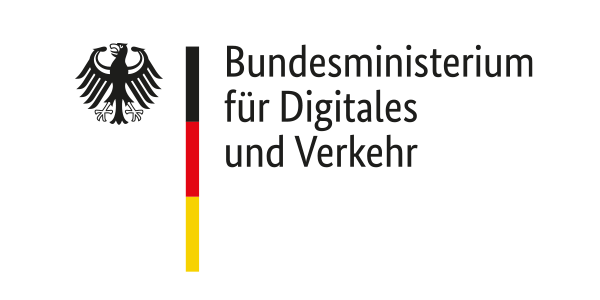Hanau, 04 October 2021 – In the spring of this year, seven leading Hessian companies came together and offered the state government active support in establishing a regional hydrogen economy. With Kasseler Verkehrs- und Versorgungs-GmbH and TÜV Hessen, two more well-known companies have joined the initiative. The partners renew their joint offer to support the state of Hesse in establishing a regional hydrogen economy.
The feedback from the responsible Ministry of Economy, Energy, Transport and Housing is positive. This has held out the prospect of participation in the consultation process. The initiative is very happy to do so: Because time is pressing due to the recently passed amendment to the federal Climate Protection Act, which calls for further tightening of national climate goals such as net greenhouse gas neutrality by 2045. And hydrogen has a crucial role to play in achieving these goals.
All members are convinced that Hesse has all the prerequisites to become a future location for hydrogen. They advocate a pragmatic, cross-sector and technology-open approach. From the partners’ point of view, this is the only way to provide new impetus for the Hessian economy and to achieve the ambitious climate protection targets to which they are clearly committed. They want to make an active contribution to Hessen becoming a pioneer in climate protection. In addition, they want to do justice to their responsibility for future generations. At the same time, the initiative is committed to ensuring that Hesse remains a strong business location even after the upcoming transformation. This is the only way to ensure employment, growth and prosperity for citizens.
The companies are already demonstrating in various places that they are convinced of the power of hydrogen for climate protection: In the future, fuel-cell trains fueled by hydrogen will roll through the Taunus region in Frankfurt-Höchst. 3.5-ton delivery trucks with fuel cells are to be on the roads of Hesse in 2022. And one concept is investigating how green hydrogen for mobility applications can be produced from climate-neutral electricity. Promising beginnings have been made. On the road to the hydrogen economy, there is still a lot to be done, a lot of points to be set and open questions to be clarified. The cross-sector initiative is very happy to contribute to this process.
Quotes from partners:
Philipp Walter, Global Head of Business Development Heraeus Precious Metals: “Heraeus warmly welcomes the new members, Kasseler Verkehrs- und Versorgungs-GmbH and TÜV Hessen. It’s important to bring together an extensive network of companies to build and use hydrogen as a competitive and efficient energy source.”
“It’s good that our initiative is growing and becoming more diverse,” said Dr. Joachim Kreysing, Managing Director of Infraserv Höchst. Industriepark Höchst’s operating company has been active in hydrogen and fuel-cell technology for years. A hydrogen filling station for trains is currently being built at the 4.6-square-kilometer research and production site. Cars have been able to refuel with hydrogen at Industriepark Höchst since 2006. “The chemical industry will continue to drive the further development of key technologies of the future,” said Dr. Kreysing. “In doing so, it’s important to also use transitional technologies that allow us to achieve CO2 savings very quickly.”
Dr. Michael Maxelon, Managing Director of Kasseler Verkehrs- und Versorgungs-GmbH: “We are part of the comprehensive energy, heat and mobility turnaround and therefore actively support the development of a regional hydrogen economy,” says Dr. Michael Maxelon, Managing Director of Kasseler Verkehrs- und Versorgungs-GmbH, explaining the company’s commitment. “To this end, we are bringing our North Hesse network of research, industry, energy suppliers and the mobility industry into the initiative.”
Dr. Constantin H. Alsheimer, Chairman of the Management Board of Mainova AG, says: “The heating sector is the crucial building block of the energy transition. That’s why hydrogen must also play a decisive role in the heating market. In our view, it has the potential to replace natural gas completely, affordably, reliably and climate-neutrally by 2045. However, the demand cannot be met from green hydrogen alone, especially at the beginning. We therefore need technology openness in production to achieve the necessary speed in reducing greenhouse gases.”
Tim Evison, Senior Vice President Messer SE & Co. KGaA: “Not only the transportation sector, but also Hesse’s industry now have an explicit obligation to make a significant contribution to the decarbonization of our state by 2030. Among other things, we will succeed in this challenge if we apply renewable hydrogen in the respective operational processes as well as use it as a clean, affordable and expedient fuel. To achieve this, we are using our gas experience and Messer’s application technology expertise – together with the partners of the Hydrogen Initiative – in an energetic, targeted and, above all, technology-neutral way. In this way, Hessen will be strengthened as a business location by the energy turnaround.”
Uwe Hochgeschurtz, CEO of Opel: “In addition to battery-electric vehicles, we are also focusing on hydrogen and fuel cell propulsion. No CO2 emissions, long ranges and refueling within just three minutes are major advantages of this technology. That is why we have developed light commercial vehicles in the 3.5-ton class with fuel cell drive. Overall, we aim to produce an initial series of 2,000 vehicles of the Opel Vivaro-e HYDROGEN and its sister models from the end of 2021 to 2023. We are counting on further rapid expansion of the network of hydrogen filling stations in Hesse as well to enable the success of fuel cell technology.”
Prof. Knut Ringat, Managing Director and Spokesman of the Management Board of Rhein-Main-Verkehrsverbund, says: “With the fuel cell trains in the Taunus network, RMV is breaking new ground and bringing the world’s largest hydrogen train fleet in passenger transport onto the rails. Fuel cell trains could also be an alternative for many other diesel train routes if there were hydrogen available nearby and a corresponding refueling infrastructure. However, both are still rare at present. Hesse therefore needs a strong regional hydrogen economy that quickly makes hydrogen available in many places – so that the already environmentally friendly public transport system can also save even more pollutants in even more places.”
Jürgen Bruder, CSO and member of the executive board of TÜV Hessen, says: “Consistent climate protection as well as digitalization are the gamechangers worldwide for a livable future for so many people on our planet.”
Max Viessmann, Co-CEO Viessmann Group: “The heating sector can already make a decisive contribution to increasing the pace of building decarbonization. And this is necessary to achieve the EU’s new climate protection targets for 2030: 55 percent CO2 reduction compared to 1990. Hydrogen can and will make an immense contribution to shaping the living spaces of future generations, but its potential in the heating market is vastly underestimated.”



